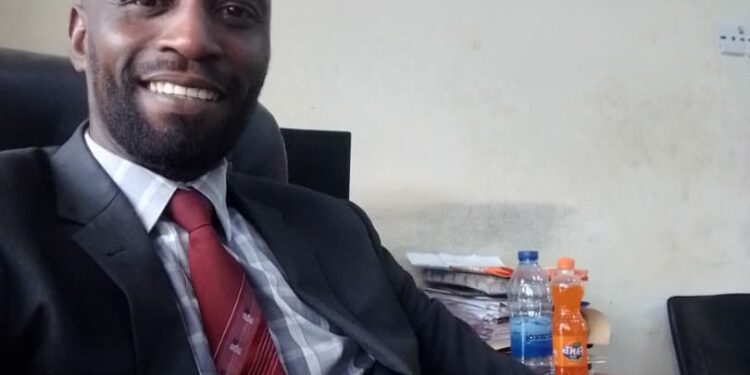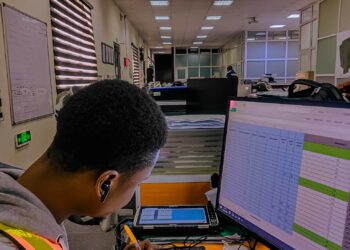International education has long been championed as a vehicle for global development, inclusion, and intercultural understanding. This I agree with because millions of students cross border every year to gain access to world-class learning environments. However, for students from under-resourced regions, international study is not merely in satisfaction of an academic ambition, it is indeed a generational investment, a means to break cycles of poverty and underrepresentation.
Yet, a single clause in most international student visa regimes cap paid work during term time to 20-hour per week, often implemented under the guise of protecting the sanctity of; academic enterprise, immigration control and local labour markets. The 20-hour rule no doubt reflects state interests and government priorities but fail to account for the complex socio-economic and cultural context from which those foreign students originate. It thus inadvertently operates a structural barrier, as a gate, blocking access for the very underserved communities that global education claims to uplift from crossing the bridge to access the learning culture available on the other side.
The principle of equality embedded in the 20-hour rule is formal but not substantive. It treats all international students the same on paper, but its impact varies asymmetrically depending on a student’s socio-economic status, nationality, educational history, and family background.
Students from countries in the Global South such as Somalia, Laos, Nigeria, Bangladesh, Iran, Pakistan, Ethiopia, Bhutan and parts of Latin America often come from families who liquidate assets or take on debt to fund overseas education for foreign students. And, in most cases, these foreign students do not have access to support from their home governments in form of scholarships, bursaries and student loans so they hope to rely on part-time work to part-fund their tuition. The 20-hour cap restricts their ability to meet basic needs: rent, food, transportation, and health insurance. It also limits the return on a massive financial investment made back home sometimes leading to dropouts, mental health crises, or exploitative labour in the informal economy.
The following is inscribed on www.ungraduates.co.uk – “Last year, more than 37,000 undergraduates in England, Wales and Northern Ireland dropped out of university. Students who withdraw from higher education are falling through a hidden gap.” I presume a chunk of these underserved students must be part of the ungraduates numbered above.
Ethic, linguistic, and religious minorities from home countries may already face systemic marginalization and in their host countries, they encounter new layers of discrimination based on their skin colours, hiring processes, limited access to culturally relevant support services and language barriers all of which makes almost every other thing more difficult. The work for 20-hour rule is not a guarantee that jobs will be made available. So for the foreign students, the rule is not just a constraint; it is double jeopardy! Reflected in their need-based exclusion from classroom activities and rule-based exclusion from the workspace!
International human rights instruments such as the International Covenant on Economic, Social and Cultural Rights (ICESCR) and UNESCO’s Convention against Discrimination in Education emphasize that education should be accessible to all, supported by state actors and governed by principles of equity and not just equality.
It is not ethical for the 20-hour rule to apply equally not equitably to a student from an underserved low-income Global South country with another foreign student from Switzerland. The student from Switzerland might not even need or use up his 20-hours while the student from Bangladesh, Laos or Bhutan or Ethiopia might not get a job despite needing more time than 20 hours to work so as to make ends meet. From my viewpoint, the 20-hour rule is a neutral policy with inherent indirect discriminatory elements that could be harmful to disadvantaged groups.
Moreover, the rule’s economic premise rests on an assumption of financial privilege that international students can afford to study without the need for significant income from work. This assumption is false for tens of thousands of students who rely on work to live, learn and thrive. This is more than a student welfare issue but a global education policy failure, undermining international commitments to access and inclusion, and a mockery of SDGs 4 and 10.
Interestingly, while the 20-hour limit is almost universal except for countries like Azerbaijan, Kyrgyzstan, Fiji, Lebanon, India, Costa Rica where working while studying is completely prohibited, its enforcement and flexibility varies. There are slight variations from country to country as the term time limits, holiday allowances and variations in policy implementation. Canada, for example, temporarily lifted the cap during COVID-19 to accommodate students’ financial needs and labour shortages proof that the policy is elastic when political will exists.
To align international education with principles of equity and justice, host countries and institutions should implement need-based work allowances by allowing students from verified low-income backgrounds to work beyond the limits within structured, legal frameworks. Host countries should also guarantee on-campus employment and financial aid intentionally targeted at disadvantaged students from the Global South. Legal framework to legalize and regulate freelancing and digital nomadic work in favour of underserved students should be adopted.
Host countries perception as inclusive global development partners will improve when student voices are accommodated in policy reforms especially those from vulnerable regions. Any policy aimed at terminating them from their classes, opens the door to a prison and entrenches anarchy in the cultural space. In the words of Victor Hugo, “when the door to a school opens, the door to a prison closes”. Are we opening doors or closing them? Is diversity still attractive and sustainable? Are we driving global citizenship through the medium of international education?
The 20-hour per week work restriction while well-intentioned has transformed into a barrier of quiet exclusion for students whose only disadvantage is being born in under-resourced communities. For them, the policy does not protect education; it obstructs it.
This moment presents an opportunity to choose between preserving outdated restrictions or creating pathways that honour the dignity, resilience, and rights of all learners, regardless of where they come from. The future of international education depends on our answers. Not how much we make or save from visiting students but on how much meaning we make from the global cross-cultural exchange that occurs with their coming.
This, to me, is the true gain of international education!
Olawale Louis Omotosho
Student || International Education Counsellor || Teacher || Legal & Immigration Advisor
Olawale Louis Omotosho is a Nigerian-born Teacher, International Education Counsellor and Lawyer. He is a VIP Member of the International Teachers Association, a Times Higher Education, Counsellor Association of Nigeria and British Council certified Education Counsellor. He also is a PDE Scholar at the Meadow Hall College of Education. He can be reached through mailbox.walelouis@gmail.com and linkedin.com/in/ọláwálé-louis-ọmọ́tọ̀ṣhọ́-732771204 and +2347035606703.



















































































 EduTimes Africa, a product of Education Times Africa, is a magazine publication that aims to lend its support to close the yawning gap in Africa's educational development.
EduTimes Africa, a product of Education Times Africa, is a magazine publication that aims to lend its support to close the yawning gap in Africa's educational development.